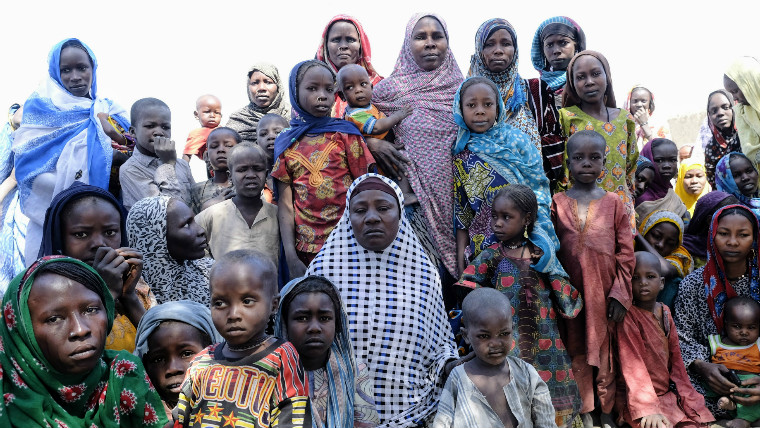Lake Chad Basin's forgotten children: Urgent action required to save lives as conflict drives hunger and exploitation

Millions of children and their families have been displaced
World Vision is urging international donors attending the Oslo Humanitarian Conference on Nigeria and the Lake Chad Region to take swift and sustained action to help end the suffering of millions of vulnerable children and mitigate economic and social devastation in the Lake Chad Basin.
2.4 million people have been forcibly displaced due to violence and conflict, or are trapped in hard-to-reach areas – more than 1.2 million of whom are children.
As a child-focused organisation, World Vision is deeply concerned about the well-being of children who have been affected by the conflict, particularly those who have been separated from their parents or caretakers and are struggling to survive on their own. Those children trapped by fighting are particularly vulnerable to being forcibly recruited into armed groups, sexual exploitation and increased incidents of child marriage.
“This is a crisis of forgotten children. Not only have children been forced to endure atrocities of enormous proportions, but many are also suffering the effects of hunger and illnesses,” said Kathryn Taetzsch, the Lake Chad Basin Response Director for World Vision.
“Some children are traumatised and require psychological support as well as medical assistance. We are especially worried about those children who have been caught up between armed groups and are now held hostage or forced to fight.”
In total, 17 million people across Niger, Chad, Nigeria and Cameroon have been affected by the long-running violence incited by Boko Haram and the military counter-offensive. Of those affected, 10.7 million people need urgent humanitarian assistance.
The conflict, coupled with the effects of climate change and dire poverty, has further exacerbated the crisis. The land is parched and Lake Chad itself is receding. Water points are scarce, water quality is poor, harvests have dried up and livestock have perished.
As a result, social tensions have sprung up. The conflict has led to millions struggling with food and water insecurity. Traditional means to generate income like fishing, agriculture and trade have been limited or completely squashed.
“Surviving has become a near miracle”, Taetzsch said. “This generation’s future is in peril. The scope of this crisis coupled with the humanitarian community’s inadequate response are nearly unprecedented. Decades of humanitarian and development gains are threatening to unravel if the global community continues to turn a blind eye to the scale and severity of the crisis. All actors must protect rights, uphold the rule of law, provide emergency water and food assistance, and prioritise ending violence against children.”
The deteriorating humanitarian crisis across the Lake Chad Basin has caused World Vision to elevate its response to the equivalent of a UN Level 3 emergency. World Vision has established new programmes in Western Chad and scaled-up interventions in Eastern Niger to respond to the needs of 300,000 of the most vulnerable children and their families.
World Vision is committed to building community resilience in the long-term but more needs to be done, which is why the charity is appealing for $15m to respond to the urgent needs of families and children in affected areas in the Lake Chad Basin.